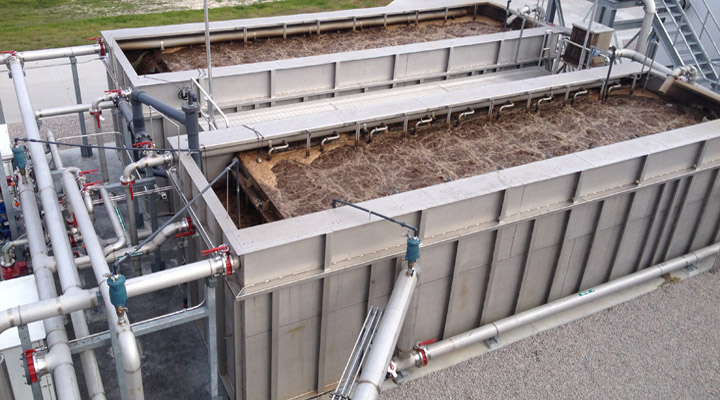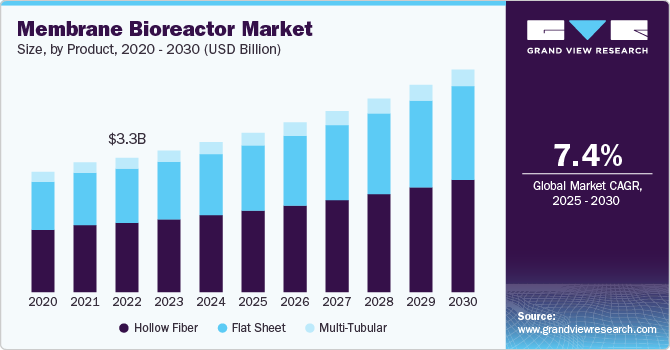Understanding the Basics of Membrane Bioreactor Systems for Wastewater Management
Wiki Article
The Benefits of Membrane Bioreactors in Sustainable Wastewater Management
Membrane layer bioreactors (MBRs) represent a crucial improvement in sustainable wastewater administration, properly combining biological therapy with innovative membrane purification modern technology. This assimilation not just improves effluent quality by efficiently eliminating impurities but likewise opens methods for water reuse in different applications, hence dealing with the pressing requirement for resource preservation. The portable style of MBRs adds to substantial reductions in ecological effect and operational prices. As the demand for sustainable services escalates, exploring the complex advantages of MBRs may disclose unforeseen ramifications for the future of wastewater treatment systems.Summary of Membrane Layer Bioreactors
Membrane bioreactors (MBRs) represent a substantial innovation in wastewater therapy modern technology, incorporating biological degradation with membrane purification to boost the effectiveness of the therapy process. This innovative system integrates the advantages of traditional turned on sludge processes with membrane modern technology, allowing for improved solid-liquid separation. MBRs make use of semi-permeable membranes to different treated water from biomass, leading to top notch effluent that can be reused or securely released into the environment.The operational design of MBRs generally includes a bioreactor where microbes break down raw material, followed by a membrane device that filterings system the mixed alcohol. This arrangement not just minimizes the footprint of the treatment center but additionally permits higher biomass focus and reduced hydraulic retention times. MBRs are qualified of treating a wider variety of contaminants, including nutrients and microorganisms, making them ideal for numerous applications, from local wastewater therapy to industrial effluent handling.
The integration of MBRs right into wastewater administration systems is indicative of a growing trend in the direction of lasting and reliable techniques in ecological engineering. Their capacity to generate premium effluent while reducing room demands settings MBR technology as a principal in contemporary wastewater therapy options.
Boosted Effluent Top Quality

The membrane filtration process functions as a physical barrier, making it possible for the retention of microbes and particulate matter, which adds to a more clear and cleaner effluent (Membrane Bioreactor). MBRs operate at greater biomass focus than conventional turned on sludge systems, advertising much more effective biodegradation of pollutants. This results in a decrease in biochemical oxygen demand (FIGURE) and overall suspended solids (TSS) levels in the final effluent
In addition, MBRs show superb performance in treating tough wastewater make-ups, such as industrial effluents and wastewater with high nutrient lots. Because of this, the effluent produced is typically of greater top quality, allowing for even more adaptable disposal options and minimized environmental influence. Ultimately, the improved effluent quality attained with MBR modern technology underscores its critical function ahead of time lasting wastewater monitoring techniques.
Water Reuse Opportunities
The top quality effluent produced by membrane bioreactors (MBRs) opens significant opportunities for water reuse in numerous applications. MBRs effectively eliminate pollutants, consisting of virus, put on hold solids, and raw material, causing cured water that meets or exceeds regulative criteria for reuse. This high quality enables the execution of water reusing initiatives throughout varied fields.One popular application remains in agriculture, where dealt with wastewater can be utilized for irrigation, promoting sustainable farming methods while saving fresh water resources. Furthermore, MBR-treated effluent can be made use of for industrial processes such as air conditioning, cleansing, and as a process water resource, considerably reducing the need for drinkable water in these procedures.
In hop over to here urban settings, MBRs help with making use of recovered water for landscape watering, commode flushing, and various other non-potable uses, adding to the total strength of water supply systems. Moreover, the integration of MBR modern technology in decentralized systems aids in taking care of local water needs, especially in water-scarce areas.
Reduced Environmental Impact
Just how can the fostering of membrane bioreactors (MBRs) contribute to a decreased environmental influence in wastewater management? MBRs substantially enhance the therapy effectiveness of wastewater while lessening eco-friendly disturbances. Membrane Bioreactor.Additionally, MBRs operate at lower hydraulic retention times contrasted to conventional systems, resulting in smaller sized treatment plant footprints. This compact layout decreases land usage, therefore protecting all-natural habitats and biodiversity. The process also creates much less sludge than traditional approaches, reducing disposal challenges and decreasing greenhouse gas discharges associated with sludge administration.
Additionally, MBRs assist in the recuperation of valuable resources, such as water and nutrients, contributing to a round economic climate. By allowing water reuse for watering or industrial procedures, MBRs aid minimize freshwater scarcity, hence promoting lasting water utilize practices. Eventually, the adoption of MBR modern technology stands for a substantial stride towards lessening the ecological effect of wastewater management systems.
Economic Advantages of MBRs

Additionally, MBRs facilitate the manufacturing of high-quality effluent, which can be reused for different applications, such as agricultural irrigation and commercial procedures - Membrane Bioreactor. This reuse ability can substantially decrease water purchase costs, giving a financial reward for markets facing strict water laws
The portable style of MBR systems additionally results in lowered land requirements, which is specifically valuable in city areas where realty is pricey. By lessening space, sectors and municipalities can save money on land acquisition and maintenance expenses.
Additionally, MBRs commonly call for less frequent maintenance and have a longer life expectancy than typical systems, further contributing to set you back savings. In recap, the economic advantages of MBRs-- ranging from lowered functional expenses to land cost savings and effluent reuse-- make them a compelling option for sustainable wastewater monitoring, using both long-term and instant financial benefits.
Final Thought
Membrane layer bioreactors stand for a transformative approach to lasting wastewater management, integrating organic therapy with innovative membrane purification for superior effluent high quality. Their capability for effective contaminant elimination facilitates water reuse, thereby preserving important freshwater sources. Additionally, MBRs add to decreased ecological influences through small styles and lower sludge generation. Economic advantages even more boost their feasibility, making MBRs a promising option for attending to the obstacles of wastewater therapy and advertising sustainable source administration.
Membrane bioreactors (MBRs) stand for a pivotal improvement in sustainable wastewater administration, efficiently combining organic treatment with advanced membrane layer filtering innovation.Membrane bioreactors (MBRs) click here for more info stand for a considerable innovation in wastewater treatment modern technology, incorporating biological destruction with membrane purification to enhance the efficiency of the therapy procedure.Attaining improved effluent high quality is one of the most significant benefits of utilizing membrane bioreactors (MBRs) in wastewater therapy.Additionally, MBRs show exceptional efficiency in treating challenging wastewater structures, such as industrial effluents and wastewater with high nutrient lots.Integrating membrane layer bioreactors (MBRs) into wastewater monitoring not just lowers ecological influence but likewise provides substantial economic benefits.
Report this wiki page